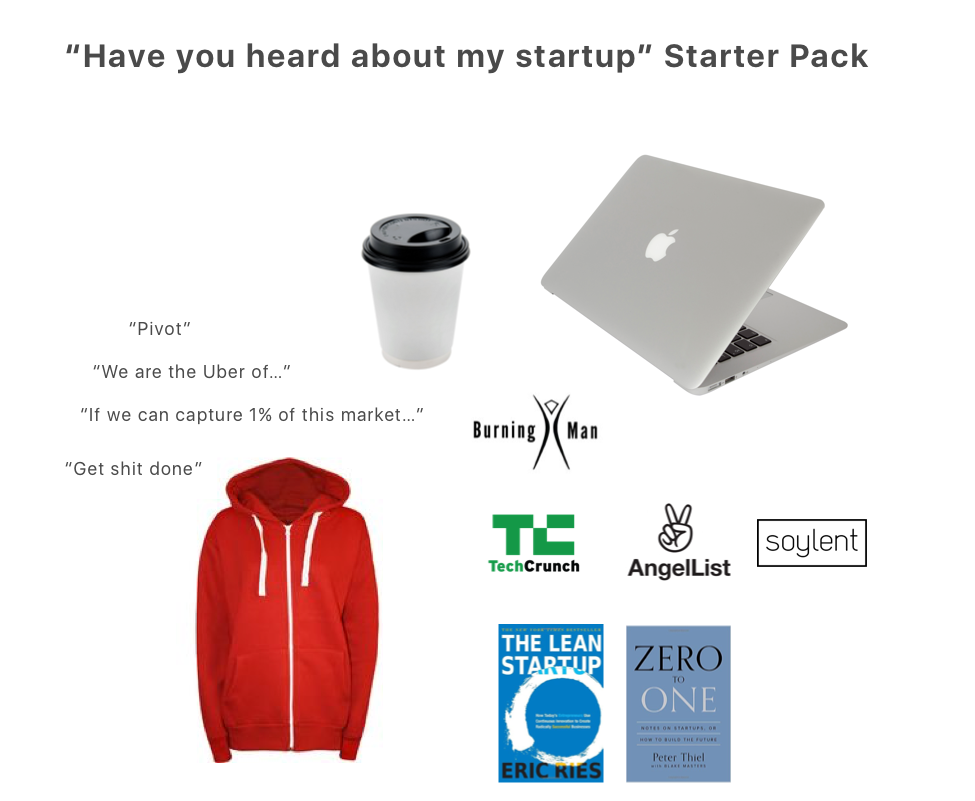I know…policy is a put off for many. It’s that space for the old men and government types that we love to hate.
Bears repeating, however, that failing to engage – worse, ignoring- the unfolding ICT policy space is myopic for all ye techpreneurs. I bet you it will only come back to bite you in the derrière.
Think of it this way. You’re building this tech platform/company/solution that will do wonders if/when it takes off. You’ve got a solid proof of concept, and spend your days and nights dreaming of its taking off or achieving unicorn status.
But, there are hurdles. Crazy ones. [Insert them here].
As the tech innovation hype across these developing markets starts to wane- and the very real challenges of scalability and sustainability increasingly nudge the builders and investors alike – I see a couple of paths being taken.
- Several entrepreneurs opt to double down on their hustle, and challenge the odds stacked against them, by pivoting or sticking to their identified course, fingers crossed for a breakthrough. The market will sort itself, basically.
- Others have taken to articulating these challenges, by writing/speaking about them in various fora, venting the frustrations in the hope that they’re addressed by someone. Often, that ‘someone’ is unidentified, or not well defined.
That someone, and the processes behind the ever-mounting stack of challenges and hurdles is that policy maker you may or may not know. The one currently consuming some report written by some consultants somewhere in London about how they should prioritise government interventions for tech innovation and entrepreneurship. S/he [i.e. the (un)known policy makers) have the crucial keys to improve or completely mess up the market you hope to tap into, especially if your target consumer base is from these parts.
Any way you slice it, policy engagement is unavoidable. As I’ve argued before, many of the frustrations and challenges emerging from the entrepreneurship space are policy issues; bad policy at that.
Yet I understand the challenge and frustrations; why, for many, it’s better or easier to just focus on the hustle.
Policy is murky, long winded, and frankly, quite frustrating. However, I am the first to acknowledge that it’s not up to entrepreneurs and innovators alone to navigate that space, and it’s rather unfortunate to see the push back to the very people building, to also step into the policy formulation/reform game. In an ideal world, the tech policies in respective countries should be a path of minimal resistance; sadly, it is anything but in most cases.
That is why I have been keen on how support functions for our promising tech innovation ecosystems can step in. It is why I have been involved with two processes I will now list here, as an attempt to capture some of the perspectives that tech innovators, entrepreneurs, innovation hubs and others have articulated in varied ways.
In both processes, I was involved in conducting the research. I don’t think the outcomes here capture all the issues and opportunities, but I hope they are a start. In how we have presented and packaged them, the aim is to showcase these insights in formats that policy makers can appreciate, and hopefully read.
None of these are particularly representative, rather, they are indicative, and with additional input and contextualisation, can be taken up for policy engagement in various countries (or so we hope).
Behold, the proposed tech policy starter pack. Comments, additions most welcome (including in the comments section below).
I would also love to hear thoughts and ideas on how tech entrepreneurs and innovators envision support for engaging in the policy/regulatory shaping spaces, both national and international. That’s my jam, fam, so hit me up in the comments section below, or on Twitter: @NiNanjira!
Here goes:
I. Innovation 4 Policy (#i4Policy)
This here policy communique gathered wish lists from innovators and tech innovation hubs from across Africa, on what these stakeholders would like policy makers to understand about tech innovation and entrepreneurship dynamics, and what policy reforms are desired.
Some of the themes addressed therein include Education and R&D, Digital Infrastructure, Finance for Innovation and Entrepreneurship, Regional Mobility, to name a few.
Where available, we included examples of good and bad practices, and are very keen to capture more.
What you can do: read, comment/suggest additions, sign, share, customise for policy engagement in your respective countries.
Currently working on how to continue the effort and support policy engagement! We have shared this communique with the Smart Africa Secretariat, and received nods from policy makers in Rwanda and Ghana (S/O to the hub network there for running with this!). More to come, hopefully.
And draft looked great! – happy 2 help promote an innovator-driven policy changes @NiNanjira @AFJellema @_SmartAfrica_
— J. P. Nsengimana (@nsengimanajp) October 25, 2016
(An acknowledgement of i4Policy by Rwanda’s Minister for Youth and ICT)
II. Tech innovation Hubs and Policy Engagement
In this study, we sought to assess if and how tech innovation hubs, those nodes that have drawn quite some attention in the past half decade or so, could do more to engage in policy co-creation and reform, representing their stakeholders.
The findings here were varied. Understandably, many hubs (just as entrepreneurs) have reservations to engage in the policy space. As we noted in the report (pg 11):
“Overall, most hub operational models either ignore or only indirectly include policy-makers as key stakeholders. Instead, they tend to focus efforts on local entrepreneurs and problem solvers, and funders drawn primarily from the non-governmental space. One explanation for this bias could be that hubs are still a relatively new phenomenon, and as such have focused on more direct clients and funders in the private sector. But our research found that policy and government processes are consistently perceived as murky, restrictive, time-intensive and – in many cases – associated with corruption or partisan politics that could harm these hubs by association. This perception often led to non-engagement.”
That said, we found some really interesting examples of engagement. From premature engagements and more informal settings to draw in policy makers, to scoring some major wins. (See the example of ccHub -pg 14, Open Data Lab Jakarta – pg 18).
We also spoke to a few policy makers in the study, to get their perspectives of if and how they engage the tech innovation space. (See pg 16 on a policy maker champion for Buni Hub in Tanzania, pg 17 on how the Ministry of Trade and Cooperatives in Kenya engages tech hubs for strategic advisory).
What I really want to highlight here are the recommendations (TL;DR). We tailored these for hubs and entrepreneurs, funders and policy makers themselves.
- Hubs and entrepreneurs, please tell your stories, try to engage in the policy space as collectives, not just as individual entities!
- To funders, we said in a nutshell: consider supporting the processes that shape operational and market environments, not just innovations and events. In particular, “…funders, especially official development aid partners, need to shed preconceived ideas of who ‘belongs’ in a tech innovation hub.”
- To policymakers: engage the organic innovation clusters rather than going at it to set up artificial ones (many of which are already white elephants).
—
There, you have it. Hopefully that piques your interests, to read and organise for how to take these starting points and make them work for you. Because, as was noted by Ory Okolloh, and that I will parrot till kingdom come:
“We can’t (forever) ‘entrepreneur’ around bad leadership, we can’t (forever) entrepreneur around bad policy.“
—
Other pro tips:
If bad policies are adopted (they are, many unfavourable for local solutions to scale), we'll remain at the mercy of others. #AfriLabsAG
— Nanjira (@NiNanjira) October 27, 2016
Anyone planning a tech innovation and entrepreneurship conference on Africa, you’ll be winning major if you convene these two groups! #RIDD
— Nanjira (@NiNanjira) May 8, 2017
Don’t let poor policy fail us before we truly launch.
— Nanjira (@NiNanjira) April 9, 2017
In tech esp, gains made have largely been in policy gray areas. But as initial successes aim for scale, policy is unavoidable. #Fact
— Nanjira (@NiNanjira) January 19, 2017
(Image courtesy of Reddit)

